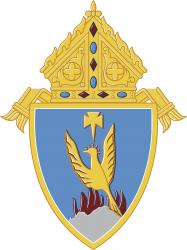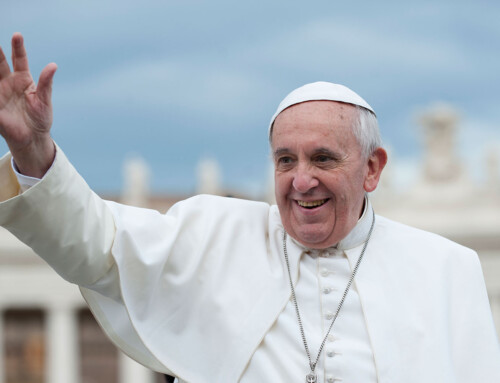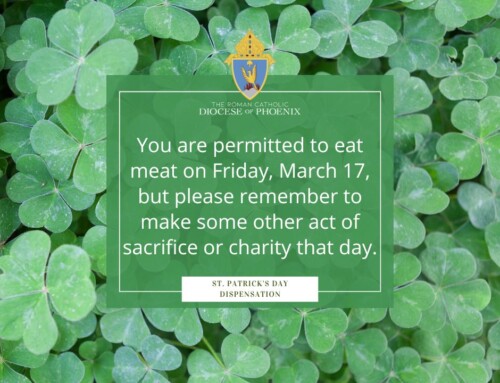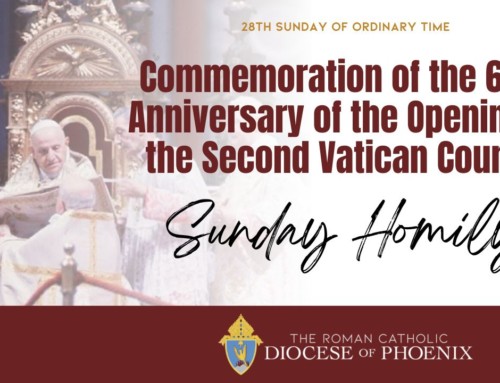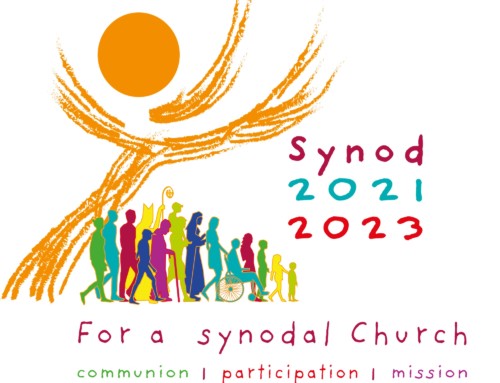Bishop Olmsted Announces Establishment of ‘Racial Healing and Reconciliation Commission’ in the Diocese of Phoenix
July 31, 2020 | En Español
Racism or any type of injustice against the human person is incongruent with Church teaching. On June 3, 2020, as the country reeled from the senseless and shameful killing of George Floyd, Bishop Thomas Olmsted released a Pastoral Statement on Racism, sharing the following:
“Racism is a sin — it is a direct affront to the dignity of the human person who is a unique, precious gift from God… I unite my voice with the Black community, people of color, and all who are working for an end to mistreatment, discrimination and injustice.
We must work together to strengthen our families and communities. So let us lead in peace not in a violent or destructive manner, remembering the words of Jesus, ‘Blessed are the peacemakers, for they will be called children of God’ (Mt. 5:9). Let not our differences lead to division or hatred; rather, let them lead to a profound respect for the dignity of each person. Let us strive to understand rather than to tear each other down.”
Consistent with his commitment to work to oppose racial injustice and promote understanding, in early June Bishop Olmsted established The Racial Healing and Reconciliation Commission. The purpose of the Commission is to recognize:
“As brothers and sisters created by God to live in solidarity with one another, the Catholic Church cannot ignore or condone injustice in any form – including racial injustice. The purpose of The Racial Healing and Reconciliation Commission is to assist the Bishop in identifying where bias and prejudice causes injustice here in the Diocese of Phoenix. The Racial Healing and Reconciliation Commission will develop recommendations for how we can work together to ensure that our parishes, schools, and ministries strengthen all families and communities so that together we can live out our call to be ‘missionary disciples of Jesus.’”
The Racial Healing and Reconciliation Commission is a diverse and multicultural group of community and Church leaders representing the major racial and ethnic groups in the Diocese of Phoenix, unified by their faith in Christ, their love for the Church, and their sincere desire to end racial discrimination and injustice. From its first meeting on June 9, 2020, and in multiple meetings throughout the summer, The Racial Healing and Reconciliation Commission has committed itself to a deep and thorough exploration of the causes and impacts of racial injustice, and the ways in which the Church may equip Catholic leaders, laity, and student bodies with the tools necessary to combat racism as missionary disciples of Christ.
In addition to the varied life experiences of its membership, The Racial Healing and Reconciliation Commission is exploring ways to ensure a full understanding of these issues among our communities, asking such questions as:
- How has racism impacted our local Church? In particular, what has been the experience of African Americans, Native Americans, Latinos, and the other racial and ethnic groups who comprise the local Church?
- How can the education of Catholic leadership, laity and student bodies be more effective in combating racism?
- How do we equip Catholic leaders with the tools necessary to answer the Gospel’s call to uphold the value and dignity of every person?
Most recently the Diocese of Phoenix has been made aware that some of our Catholic schools have been contacted by various alumni and other groups recommending specific action on issues relating to racial injustice and the societal disharmony that weighs so heavily on all of our hearts. Xavier College Preparatory, in particular, has been a focal point of these efforts.
The Diocese of Phoenix supports Xavier in its mission as a Catholic high school to prepare women of faith with knowledge, skills, and integrity to meet the challenges of a changing global society in a positive and productive manner celebrating unity in diversity. Xavier College Preparatory is rooted in Catholic tradition and has been a champion for empowering young women through our Catholic faith and education since 1943, making an indelible impact on our community and the women it has served for over 75 years. The Racial Healing and Reconciliation Commission will be working closely with Xavier College Preparatory and our other Catholic Schools to honor the pledge Xavier made to its community to “combat the sin of racism… and to prepare our students academically, spiritually, and morally, within the context of our Catholic faith, to defend human dignity and justice, whenever and wherever they are attacked.”
As one Body in Christ, this does not fall to any one school or community to address these important issues – it is up to all of us to address these issues head on. For this reason, Diocese of Phoenix Catholic schools have been instructed to forward all calls for action by community groups to the Catholic Schools Office for review and consideration by The Racial Healing and Reconciliation Commission. The intention of The Racial Healing and Reconciliation Commission is to develop specific recommendations to present to Bishop Olmsted, and help guide our parishes, schools and other ministries in implementing those measures throughout the Diocese.
As we continue to pursue this important mission, we ask the Holy Spirit to fill our hearts and kindle in all of us the grace and perseverance exemplified by that of Sister Thea Bowman, the granddaughter of slaves and the first African American member of her religious order. Sister Thea dedicated her ministry to breaking down racial and cultural barriers through prayer, preaching and good communication — and today she is on the road to sainthood. We continue to pray for her cause for canonization and look to Sister Thea as an example of how we as Catholics can help overcome racism in society.

